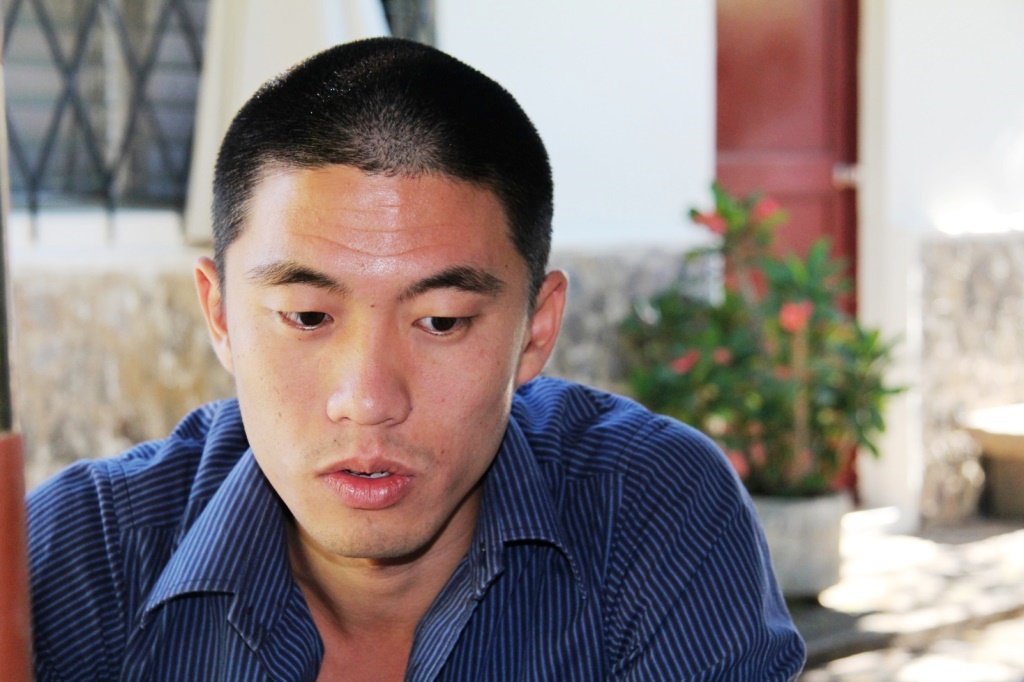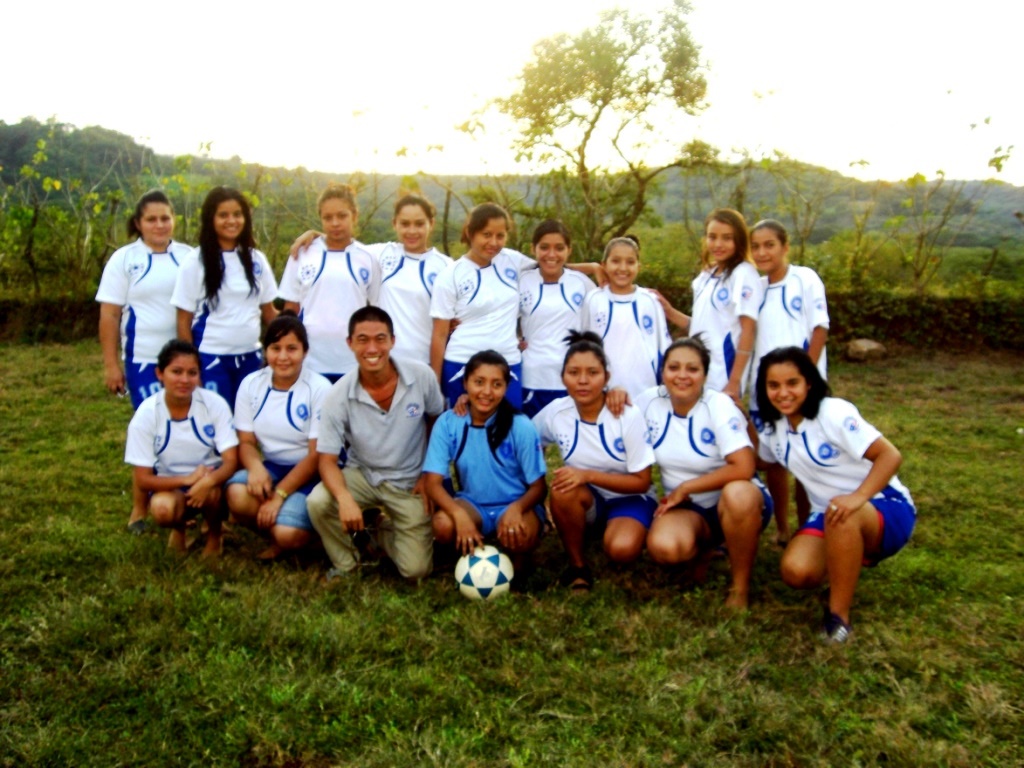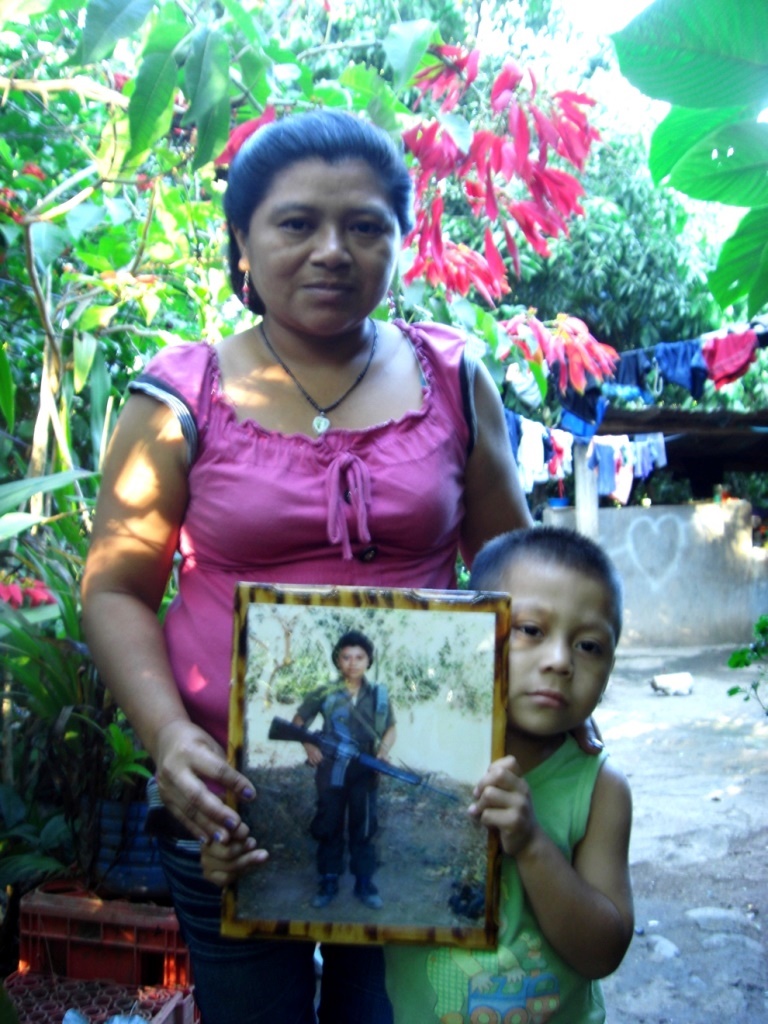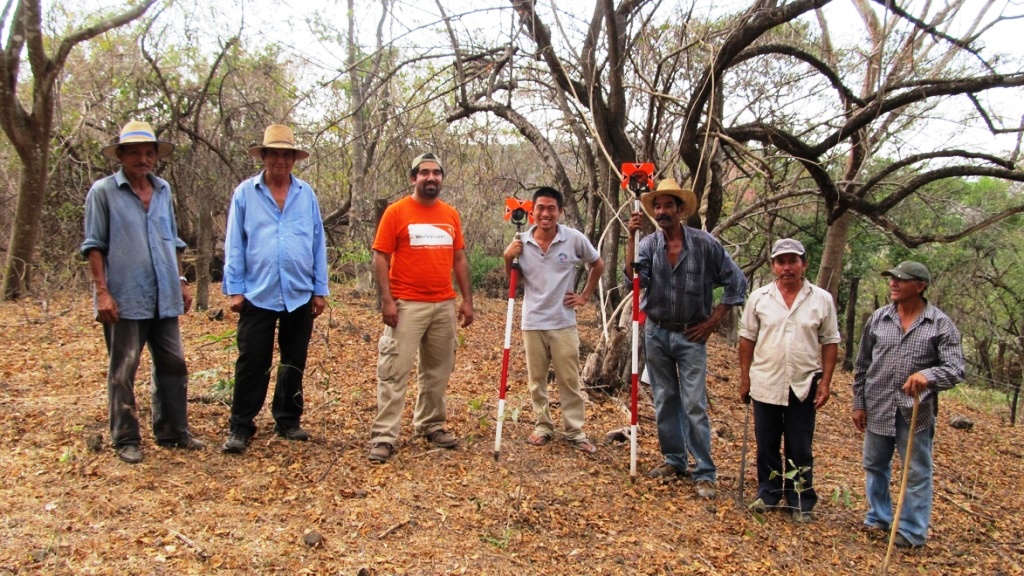
Editor’s Note: At least three times during our interview other members of Koji’s Peace Corps team interrupt him reminding him the ride is waiting to take them elsewhere. He is unconcerned committed to our interview. He knows they will wait for him. We are privileged to have spent time with this motivated young man who is deeply introspective, knowledgeable about international policy, and dedicated to service.
Can you share a bit about your background?
I was named for “Allen Street,” which is also called “Avenue of the Immigrants” in East Village of New York City. This is a very diverse environment composed of German, Jewish, Polish, Dominican, and Puerto Rican immigrants. I am the only child of my parents, who are both avant-garde artists – my dad is a painter and my mom is a choreographer. I was born there on May 27, 1988.
Perhaps because of where I lived and my parents’ chosen professions, I benefited from the early exposure to people of all kinds and of international influences surrounding my parents from places such as Brazil, Portugal, and England. My godmother is from Barcelona.
Tell us about your education.
I attended a boarding high school, Lawrenceville, in New Jersey. In high school I attended a summer trip to Guatemala similar to Habitat for Humanity and since then have devoted myself to helping underprivileged social groups. I’ve also volunteered in Ghana.
In terms of other international travel I have studied or vacationed in Costa Rica, Mexico, the Dominican Republic, Ireland, Spain, England, France, and Japan.
My parents instilled in me a sense of responsibility which naturally led me to study sociology and public policy in college. I chose William and Mary in Virginia because it was a good school at a good price. I think it also reminded me of my high school. In New York City we took diversity for granted, whereas in Virginia I saw it as my responsibility to bring that to William and Mary. I had leadership roles within the African-American and LGBT communities in college, although I’m a straight Asian-American. I graduated from there in 2011.
What did you do after college?
I was looking to see where the needs were to devote myself and first considered international development. I think I was leaning toward domestic public policy in general but then began to think of international possibilities as well.
Is faith part of your life? If so, how does it impact you to encourage others?
The Japanese celebrate multiple faiths and my parents brought me up along similar lines but I’ve always seen religion as playing a very valuable role in society in how it inspires faith in a better future. This idea and JFK’s quote that “God’s work must be our own” are the backbone to my perspective of life. I will definitely encourage others to be more aware and to involve themselves with problems in developing countries.
Can you talk about the Peace Corps application process?
In my case I filled out an application a year in advance of the assignment. The interview was then six or seven months before being accepted followed by many health check-ups and many, many security checks. The security piece is important because we are government employees working internationally. Two months after I was accepted I was assigned to Central America and then eventually it was narrowed down to here in El Salvador.
How did the Peace Corps prepare you for this assignment in terms of learning the language and culture?
Although I had taken four years of Spanish in high school, I didn’t remember any of it. The Peace Corps provided about two months of language classes. Fluency came once I arrived here and was immersed in living with the people on a daily basis.
The Peace Corps also spent the first two months of our in-country training providing us volunteers with history and politics for background knowledge. I had done a bit of reading before arriving as well.
Is the Peace Corps still sending volunteers into El Salvador?
Yes, they are beginning to send volunteers back into the country again after not sending any in 2012. Now program restructuring has dealt with security concerns.
How do you feel about your experience in this capacity? How long can one serve?
I’m very satisfied with my experience and suggest that if anyone is even considering it to fill out an application on-line immediately. He or she has plenty of time to decide whether to accept or decline a position during the pre-service medical screening.
You can renew an assignment up to four years.
Describe your assignment including its location, please.
I’m been serving nearly two years in Caserio Los Limones, Usulutan, which is in the northern department of Usulutan. (As an aside, El Salvador is divided into 14 departments each with many municipios. Each municipio is centered around a city or large town [pueblo] where the mayor’s office is located. Within the municipio there are cantons and within each canton there are caserios. My caserio is made up of about 105 families or 500 people.)
Our role as Peace Corps volunteers is to first assess the needs within the community to which we are assigned. Then we work cooperatively with the community to address those needs.
In the case of my community, the clearest need was providing consistent potable water to the entire community. There was an existing water source; in fact, there are five natural ground springs in the area. The problem was that the water was not running 24/7 to the entire community. The community was divided up into six sectors, and depending on the time of day, the water was turned off and on from one sector to another. This put a great deal of strain on the water system, not to mention frustration for the community members. This was an old water system that was gravity fed but too small for the number of families using it. The tank itself was a medium-sized fifteen-year-old tank.
My role in this project was to work with the community on their project. First I needed to establish trust within the community itself. Before beginning I spent two months on some preliminary census work in order to have data to support the project. I sat in on a lot of meetings with civil engineers and local officials and helped to develop abilities within the community. Over seven months I worked hard to convince World Vision to get involved in this project and worked with the local mayor’s office in signing an $80,000 agreement for a new water tank.
Much of the World Vision piece happened as a result of sheer luck because I happened to be stuck in San Salvador during a ten-day rainstorm when transportation back to my community was cut off. The World Vision headquarters office was located right down the street from me, so I thought I had nothing to lose but personally make a plea for the water project. It was during that week that they finally agreed to participate.
Helping to negotiate the land for the water tank required my tracking down the owner who now lived in the U.S. to get her to sign the proper land transfer, and her U.S. lawyer, familiar with Salvadoran law, followed by getting a power of attorney for her Salvadoran daughter here in El Salvador and HER attorney here. We then had to get all records filed and coordinated in San Salvador as well as in Usulutan City. (In this community most of the people who own land were granted it as a result of the Peace Accords from fighting in the civil war. However, the people often go to the U.S. to earn income for several years and then may or may not return).
A whole new network, as well as new water meters were eventually donated from Arlington County, Virginia, to make water more equitable throughout the community, were all pieces of the project.
Were you involved in other community development projects within your community?
The other project I consider a success and am very proud of being involved in is the installation of fifty ecological stoves in my community. They are the initiative of the State Department. I recently read that they are expected to cut down respiratory disease, especially in rural Asian and northern African countries where they are promoted most.
What have been some examples of local tensions or frustrations you have experienced?
As in any group project there are miscommunications between the community and the owners. I don’t think it is unique to our situation. The corruption is hard to see. Disorganization disturbs me. Someone canceling a meeting at the last minute or coming three hours late personally angers me.
How do you deal with these frustrations?
I have learned it is important to be very, very patient.
What do you do for fun?
When I was younger, I played baseball. Now I play any sport for fun.
Whom do you read?
I read boring books, mostly policy and development related books such as Esther Duflo’s Poor Economics. Even though I’m politically liberal, I’ve always been interested in conservative public figures and recently read Edmund Morris’ Dutch about Ronald Reagan. I also have my parents send me the The New York Times Sunday magazine.
How has living in El Salvador transformed your life/your thinking?
Living here hasn’t changed my thinking or made any changes in my life’s direction. But the experience as a whole has definitely humbled me as to understanding my abilities and has given me more patience.

What has been a regret or disappointment?
So far they have centered around an inability to not have a greater impact, whether through my activities during college or my work as a Peace Corps volunteer. For example, I established a girls’ soccer team last year to address gender issues, but the team eventually disbanded itself. The macho culture of rural El Salvador is very pervasive. About five of the 16-17 year old girls in my community recently moved in with their boyfriends.
What do you like most about El Salvador?
There is a real sense of community in El Salvador. The “pick-up rides” are examples of something I like. Not in many countries in the world can you stand out along the road and have people just stop and pick you up. Even though you hear about the violence all the time, you see on the bus all the people holding one another’s babies or holding each other’s stuff just to help each other out. That is the norm. At this very moment our group is waiting for transportation that we arranged with a local on the spur of the moment. People will drop what they are doing to help someone else out.
The beaches and views are nice, yes. It sounds superficial, but for me it always comes back to the people. There are countries all over the world that have beautiful landscapes. I’ve been to Ireland, but you don’t see the same compassion, the same brotherhood that you see here among the people.
I live with people who were granted land as a result of the 1992 Peace Accords. Many of these people were physically injured or lost family during this country’s long war. The daughter of an old abuela (grandmother)I used to live with had been kidnapped when she was 12. She didn’t see her again until she was in her 30’s when the organization Pro Busqueda helped locate Felipa Diaz. Marili, like most women during the civil war, carried a gun for self-protection.

What about the violence you mentioned?
I haven’t been directly involved in any violence. The Peace Corps rules have changed in that we cannot go into San Salvador without permission. We have to tell our main office where we are at all times. One girl in our group saw a kid shot near our main office in San Salvador. My town has had five murders last year – all gang-related by the MS gang, the results of extortion because someone did not pay their “rent.”
What will you miss when you leave El Salvador?
It’s going to be tough leaving this country. I’ll miss riding in the back of the trucks which was such a change for me initially coming from New York City. I’ll miss being part of a community which is very special to me.
How do plan to stay connected to El Salvador?
I really do hope I can stay in touch. One family in particular has relatives in New York, and I may become godfather to their new baby daughter. I plan to visit within two or three years.
What happens for you in the next chapter of your life?
I want to go to grad school but don’t know if that will be immediately or if I will work first and then apply to go.
What field of study are you considering in grad school?
Right now I am all over with a very broad-based view. Things will settle out later, I’m sure, but for now I see having a broad-based view as a strength because public policy and international relations and things of that nature are becoming more and more interdisciplinary.
Do you see yourself working in government at some point?
Yes, that is a possible option.
Your life goals?
I’m being pretty flexible about my life goals and just hope to find a career in which I can have the greatest positive impact on others as possible.

What do you see as the future of El Salvador? Is there hope for this country?
I think the country is taking a lot of great first steps. I think a lot came with the Funes’ policies, such as investing in help for the poor, for instance making sure education levels are higher. It’s a big deal in my community for kids to complete the 9th grade. That must change if a country is going to succeed. Corruption of special interest groups such as working with one special thing like a construction company just because they have a relationship with the mayor’s office must stop. Those things drive a country backward. But there is definitely hope. It will succeed and do better. They have renewable energy, such as hydroelectric power, and geothermal power, that can be tapped for investment purposes.
Koji’s insight is verified in this paragraph from an article entitled: Revolt – Worldwide Institute “El Salvador: The ‘Land of Volcanoes’ and Geothermal Energy”.
“El Salvador, known as the “land of volcanoes,” is the largest producer of geothermal electricity in the region with 204 MW of production. With approximately 24 percent of its total electricity production coming from geothermal resources, El Salvador is a world leader in the development of geothermal power. Moreover, the country received a US$2 million grant from the Inter-American Development Bank (IDB) in May to establish a geothermal training center for Latin America and the Caribbean. As part of this initiative, the international training center will offer technical courses in geothermal energy development at la Universidad de El Salvador.”


